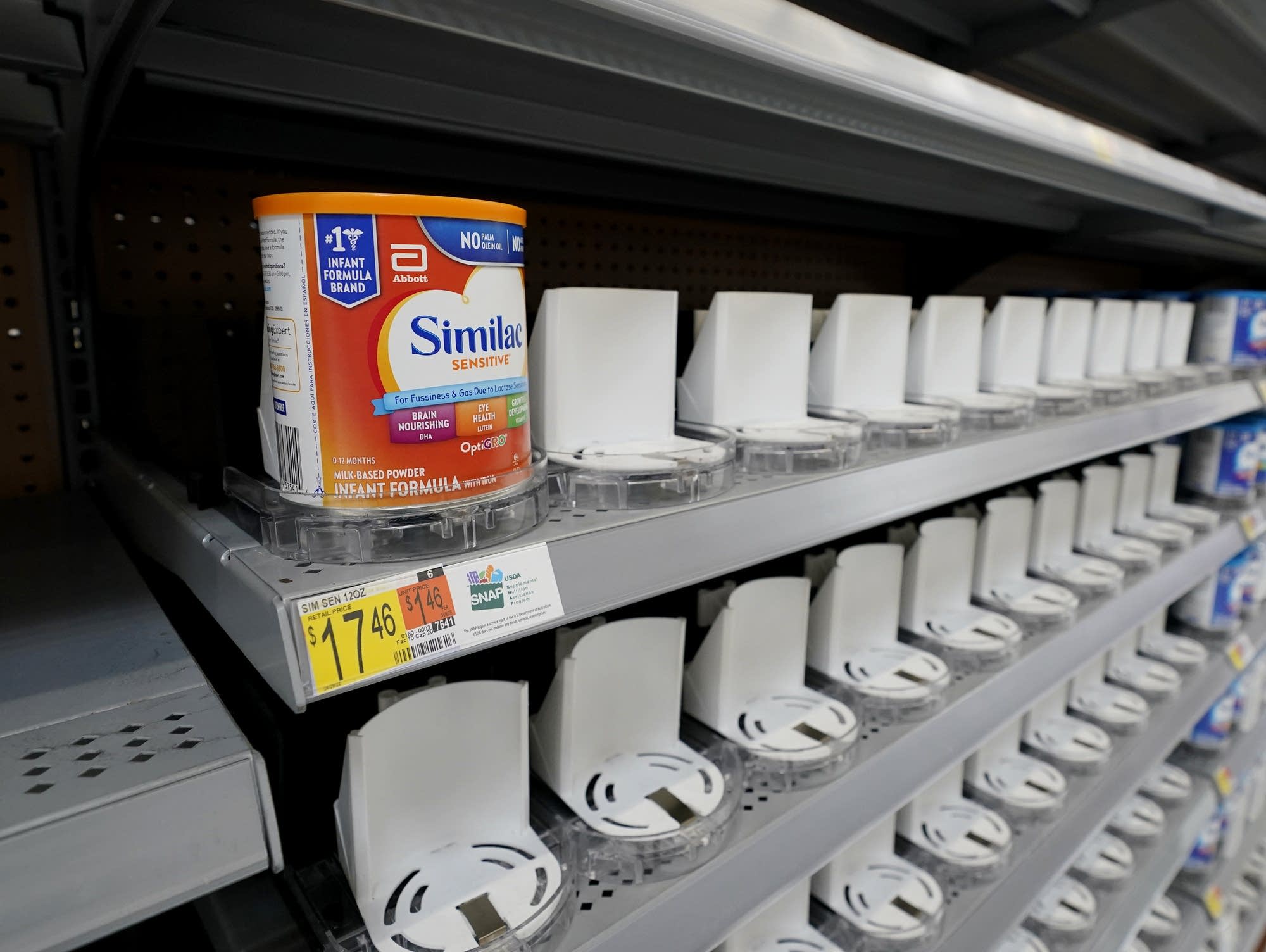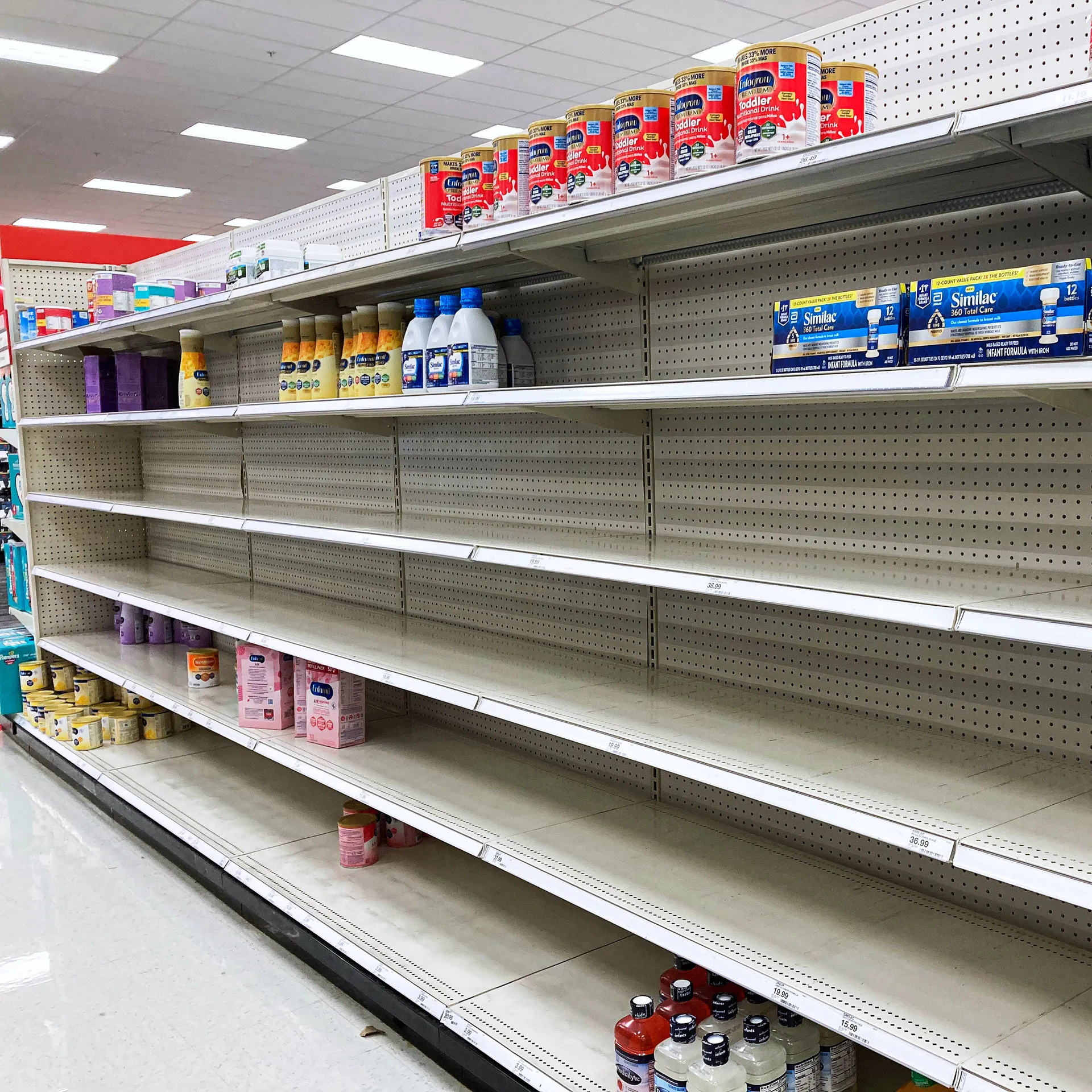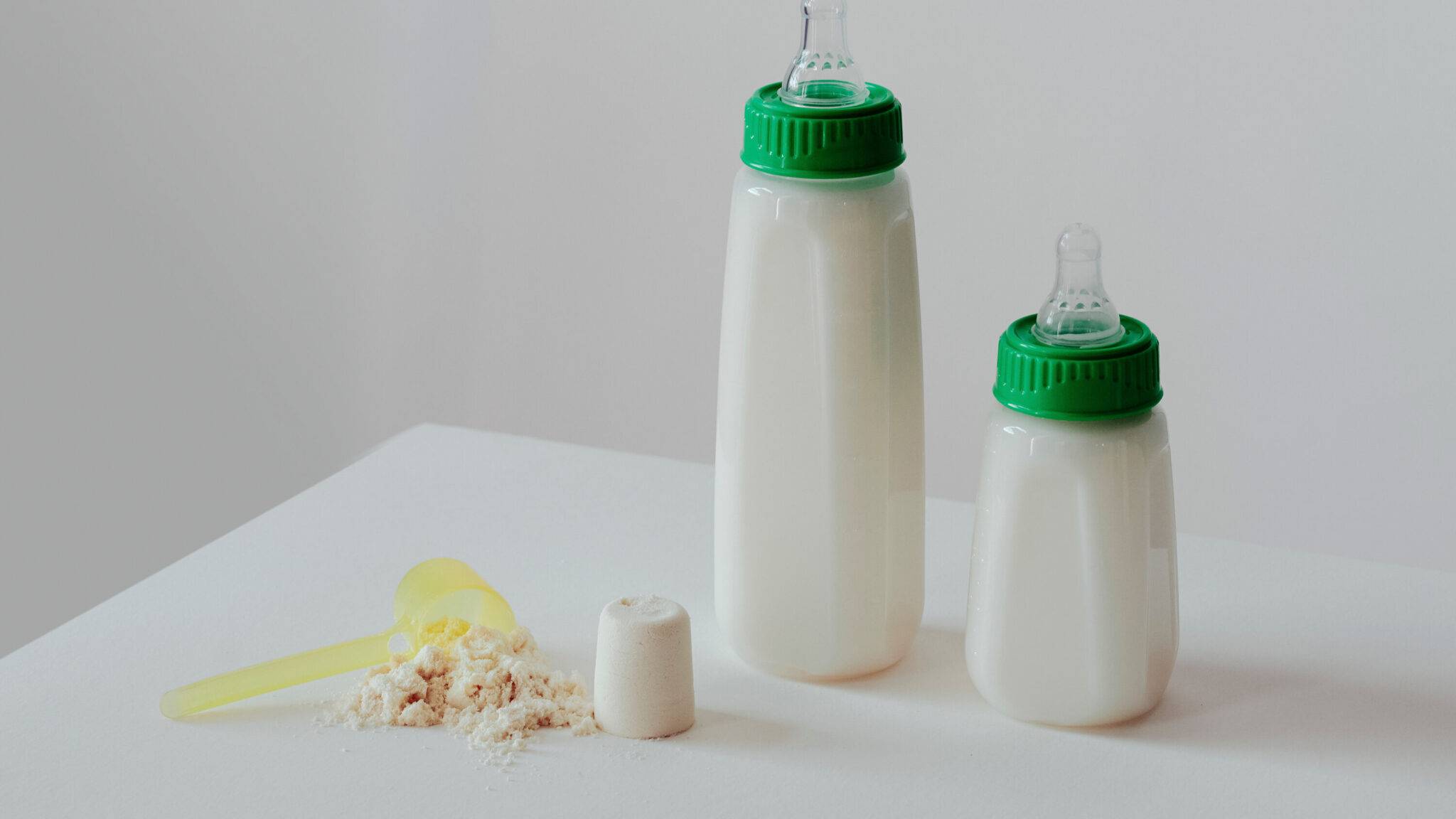Table of Contents
The formula is a key staple for many parents with infants and young children. Babies who have yet to consume solid foods fully depend on infant formula as their main source of nutrition.
The COVID-19 pandemic has caused disruptions in the worldwide supply chain, leading to a scarcity of infant formula. This predicament has affected parents around the globe, with increasing challenges in accessing the appropriate products to feed their babies.
In this piece, we will investigate the reasons why an infant formula shortage has occurred and offer valuable information for parents who are struggling to satisfy their infants’ dietary needs.

The Formula Shortage: A Deeper Understanding
The COVID-19 pandemic has caused major disruptions in the global supply chain. The infant formula industry isn’t spared due to its heavy reliance on imports and exports, resulting in a shortage in many regions around the world.
The supply shortage has had more impact due to a surge in demand for baby formula, driven by increased online shopping and families staying home.
There’s no particular formula brand or type that is exempt from the shortage. Rather, it is a global issue affecting all types of formulas. It includes powder and ready-to-feed varieties and special formulas tailored to babies’ dietary requirements.
The Impact on Parents
The formula shortage has a significant impact on parents with young children. They’re struggling to find the right formula to nourish their infants.
- Resort to Alternatives
Due to limited availability, parents opt for homemade recipes or alternative products, which don’t provide adequate nutrition to infants.
- Endure the Rising Prices
Another compounding problem is the financial aspect when parents have limited or restricted access to the formula. A formula can be expensive, and with the shortage crisis, prices will be further pushed upward.
- Buy from Unauthorized Sources
Due to the urgency of the need, some parents resort to buying the formulas from unauthorized or unscrupulous sources. Chances are, these may be counterfeit or expired, which compromises the health of their babies.
What Parents Can Do
If you are a parent struggling to find the formula you need, there are several steps to address the issue.
- Check Local Stores Regularly
Despite the shortage reports at many stores, it’s recommended to regularly check for any new stocks at nearby stores. Some stores impose quantity limits on formula purchases to ensure that more parents can get their hands on this essential product.
- Stock Up When Possible
Once you have the chance to get hold of the formula you need, consider building an optimal inventory of the item. This assures you of supply in the event of future shortages and supply disruptions.
However, be mindful when stocking up on baby formula. Be aware of the expiration dates of the items you stock and the rate at which your baby consumes them. For your baby’s safety, ensure that the stocks are consumed before their expiration date.
- Look Online
It’s worth exploring the online market for formula despite the shortages faced by many online retailers. Opting for subscription services offered by some retailers can guarantee a constant supply of formula.
- Consider Alternative Brands
If you can’t find the formula brand you used to buy, try a different one. But whenever you intend to change your baby’s formula, consult first with your pediatrician, especially if your baby has dietary restrictions.
- Stay Informed
Keep yourself updated on the formula shortage and availability in your area by following credible news outlets. You can also inquire with local retailers about their upcoming formula shipments.
- Discuss with Your Pediatrician
If you are unable to find the formula you need, consult your pediatrician. They offer alternatives or a guide on how to prepare the formula at home. However, this approach is your last resort and will be under the supervision of a qualified healthcare professional.

What are the Alternatives to Baby Milk Formula?
The marvels of breastfeeding can’t be stressed enough. It’s the most natural and affordable approach to meeting the nutritional and dietary requirements of infants. However, not all mothers can breastfeed their babies due to personal and medical reasons.
For mothers who can’t breastfeed, baby milk formula is a key staple. However, just like any consumer good, it’s subject to the economic forces of supply and demand.
Baby milk formula is relied upon as a primary source of nutrition for infants. In times of shortage or if parents can’t afford it, there are options available.
Donor Milk
Donor milk is provided by other lactating moms and is available through various channels, such as dietary banks or peer-to-peer online groups.
The drawback of this option is that it’s subject to safety screenings. Another is that it could be costly and raise doubts regarding its quality and safety.
Homemade Formula or Cow’s Milk
This approach can be unsafe. It could be detrimental since it may not provide the adequate nutrition needed for healthy growth and development in infants. As a result, infants are at risk for critical health problems such as malnutrition and hampered growth.
This option lacks the guarantee required by most medical professionals. Therefore, this is considered a last resort and should be utilized under the supervision of a health expert.
The Formula Industry: A Global Perspective
Having sufficient and uninterrupted access to all the critical elements of baby milk formula is extremely important. Unfortunately, the industry’s weak supply chain has become evident with the formula shortage.
Problems in logistics and distribution resulted in severe consequences, highlighting a significant issue that needs urgent attention.

Limited Supply of Raw Materials
The limited production of its essential components, which are its raw materials. such as lactose and whey protein concentrate pose a significant challenge because only a few suppliers manufacture them.
Boost Domestic Production
The sector must prioritize domestic formula production to decrease its reliance on imports. This involves supporting local manufacturing facilities, especially in regions where there’s a greater demand for the end product.
Strong domestic production guarantees a more stable supply of formula in the event of future disruptions in the global supply chain.
Why is there Formula Shortage?
Formula manufacturers rely on a complex system of transportation and distribution to get their products to stores and ultimately to parents who need them. The pandemic has caused disruptions in supply chains and worldwide shipping.
The disruptions in the system are caused by border closures, reduced capacity at ports, and worker shortages. These cause delays in the production and delivery of the formula.
On the other side of the coin, the pandemic has resulted in a surge in the demand for infant formula. As mothers stay home with their babies, the preference for formula feeding has escalated, either as a substitute for breastfeeding or as a supplement to it.
The amplified requirement has adversely impacted the supply chain, resulting in shortages of the product in certain regions.
What Can Be Done to Address the Formula Shortage?
Dealing with the issue of a formula shortage is no simple task, and there is no immediate solution available. Long-term remedies can be taken to tackle this issue.
Improvements in Supply Capabilities
Manufacturers and distributors of formula, being on the supply side of the value chain, should undertake long-term planning to improve their production and transportation. They may implement innovative technology or beef up their manpower capacities.
These long-term solutions aim to speed up formula manufacturing and logistics.
Government Intervention
The government can play a role in addressing the formula shortage. Formula manufacturers can receive funding to expand their production capabilities. This could be achieved through improvements in business credit facilities and capital asset investments.
On the demand side, the government can implement fiscal measures for parents who can’t afford formula. Granting government subsidies is one example. In coordination with manufacturers, the availability of free formula goods to low-income groups is another measure.
Global Trade Policies
Initiatives can be taken to decrease trade barriers and improve transportation systems, enabling the formula to be distributed more efficiently across the globe.
Trade barriers can be implemented through a relaxed tariff system on the importation of raw materials or end-products as well. It could be a decrease in tariffs, exemption schemes, the granting of tax holidays, or other similar trade measures.
Campaign for Breastfeeding
In the context of public health, or as a community, we can encourage and assist parents who opt to breastfeed, ultimately decreasing the need for formula and guaranteeing that infants receive adequate nourishment.
To foster breastfeeding, educate mothers through campaign initiatives such as seminars for increased awareness, public health forums, and the grant of free supplies such as breast pumps or other lactating aids.
What are the Consequences of the Formula Shortage?
The pandemic has significantly disrupted the supply chain. The insufficient availability of the formula can be attributed to several factors. It’s the parents who endure the consequences of the limited supply.
- A surge in panic buying and transportation challenges creates a multiplier effect.
- Significant stress for parents resorting to risky options such as homemade formulas or cow’s milk as substitutes.
- Creation of a black market for formula. Numerous infants’ well-being is at risk due to financially struggling families resorting to purchasing counterfeit formula. Our current situation can be traced back to the counterfeit items we obtained.

Baby Milk Formula Shortage is Everyone’s Concern
The formula shortage knows no global limits. Parents endure the challenge and significant stress. The formula industry has an all-encompassing task—working to avoid shortages on the supply side alongside measures to assist parents on the demand side.
It’s also imperative for parents to seek other options like breastfeeding, homemade formula, and donor milk. Nevertheless, professional medical advice should be sought before considering these alternatives.
Ultimately, despite the challenges and crises, parents strive to provide adequate nutrition to aid their babies’ growth and development. Omega Pediatrics helps to lessen the impact of the crisis by assisting parents with any feeding-related issues.
We at Omega Pediatrics can help mothers through education, counseling, and advice on breastfeeding and other nutrition requirements of our young patients. Come book an appointment with us!
FAQ
What’s causing the formula shortage?
Disruptions in the global supply chain due to COVID-19, including border closures and worker shortages.
How does it impact parents?
Parents struggle to find formula, face rising prices, and may resort to unsafe alternatives.
What can parents do about it?
Check stores regularly, stock up when possible, explore online options, consult pediatricians, and stay informed.
What are alternatives to formula?
Donor milk, homemade formula, or cow’s milk, though they’re not recommended without medical supervision.
What are the consequences?
Increased stress, unsafe alternatives, and the emergence of a black market for formula.



